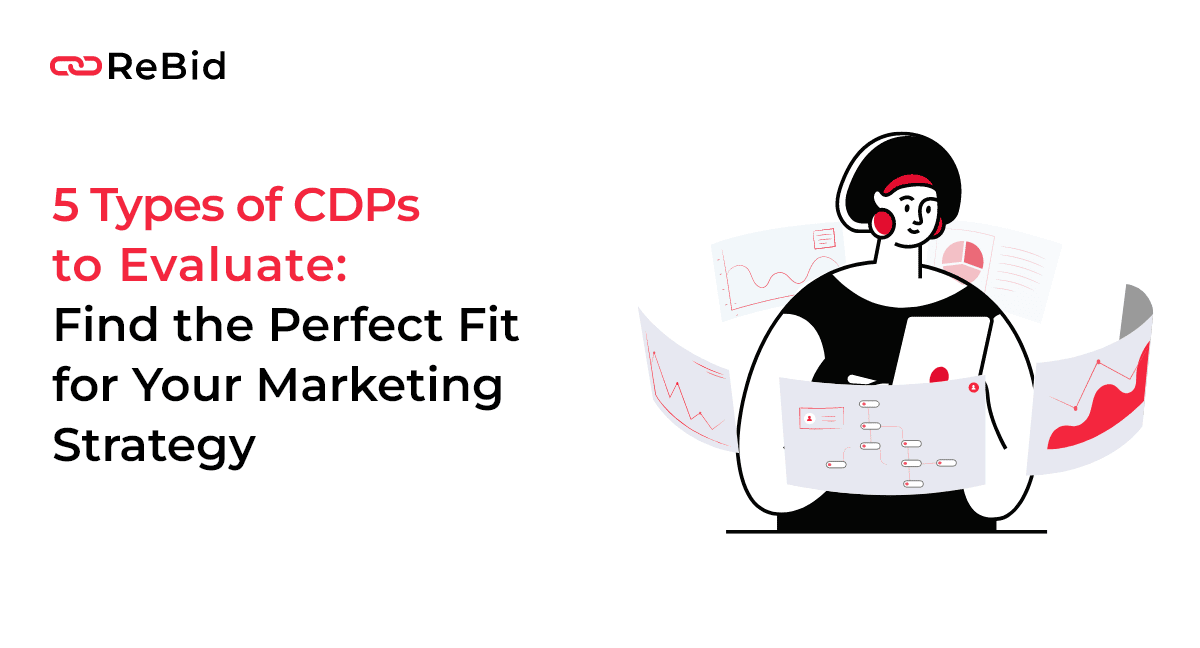Customer data platforms (CDPs) are a relatively new technology that allows businesses to collect, manage, and use customer data in a more effective way. There are several different types of CDPs, each with its own unique features and capabilities.
It’s estimated that organizations will spend a total of $672 billion on enterprise software by the end of 2022. Don’t be one of those businesses that don’t get their money’s worth – take the time to carefully evaluate your options and make informed decisions to ensure that software investments like CDPs can fully support your business’s success.
Source: Statista
Choosing the right customer data platform (CDP) starts with evaluating your business goals and understanding your organization’s needs. Before making a decision, consider what you hope to achieve with a CDP and how it fits into your overall marketing strategy. We delve into the different types of CDPs for you to evaluate.
5 Types of CDPs for Marketers to Better Understand and Engage with Customers
1. First-party CDPs: These CDPs are owned and operated by the business itself and are used to collect and manage data from the business’s own sources, such as its website, mobile app, and customer relationship management (CRM) system. This type of CDP is useful for businesses that want to centralize their customer data and gain a single view of their customers.
2. Third-party CDPs: These CDPs are owned and operated by external companies and are used to collect and manage data from a variety of sources, including social media, online advertising, and other third-party data sources. This type of CDP is useful for businesses that want to gain a more comprehensive view of their customers, and better understand how they interact with the business across different channels.
3. Real-time CDPs: These CDPs are designed to collect, manage, and use customer data in real time, allowing businesses to respond to customer actions and events as they happen. This type of CDP is useful for businesses that want to provide personalized experiences to their customers, such as targeted marketing messages or personalized recommendations.
4. Multi-channel CDPs: These CDPs are designed to collect and manage customer data from a variety of different channels, including online, offline, and mobile. This type of CDP is useful for businesses that have a presence on multiple channels, and want to gain a consistent view of their customers across all of those channels.
5. Hybrid CDPs: These CDPs combine the features of multiple CDP types, allowing businesses to collect, manage, and use customer data from a variety of different sources in real-time. This type of CDP is useful for businesses that want to gain a comprehensive and real-time view of their customers, and use that data to provide personalized experiences across multiple channels.
Overall, customer data platforms are an important tool for businesses that want to better understand and engage with their customers. By collecting, managing, and using customer data in a more effective way, businesses can provide personalized experiences, improve customer loyalty, and drive revenue growth. CDPs also enable businesses to measure the effectiveness of their marketing efforts and make data-driven decisions to optimize their campaigns. Overall, there are many types of CDPs to choose from but choosing the right for businesses is important.
Why ReBid Reigns Supreme in the CDP Realm
ReBid Insights is a fully customizable CDP that caters exactly to your business needs. With ReBid Insights, you can experience exceptional insights across offline and online channels while boosting ROI. All of this without compromising on data security.
At ReBid Insights, we take customer data security and privacy seriously. We are compliant with GDPR and other regional data security and privacy regulations and have achieved SOC2 Type-2 and ISO 27001 certifications. We understand the importance of protecting customer data and strive to strike a balance between providing personalized experiences and respecting individuals’ privacy. We work closely with brands to ensure that we prioritize data security and privacy in all of our operations.





